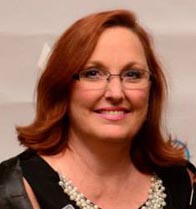Courses
Computer Science Principles
This workshop provides teachers with the tools they need to implement an effective AP Computer Science Principles course. During this training, teachers will explore the computational thinking practices and the components of the curriculum framework, including the big ideas, enduring understandings, learning objectives, and essential knowledge. Participants will understand how to use activities that organize the course content to develop students’ proficiencies in the skills identified by the curriculum framework. In addition, participants will work on a course plan that will help them decide how they will teach the skills and content of the AP Computer Science Principles course.
AGENDA
Tuesday
Understanding the Course:- Lesson 1: AP Computer Science Principles: Engaging All Students
- Lesson 2: Computational Thinking Practices and the AP Computer Science Principles course
- Lesson 3: Developing Student Understanding
- Lesson 4: Understanding the Learning Objectives
- Lesson 5: Understanding the Big Ideas
Wednesday
Understanding the Course (cont.):- Lesson 17: Assessment Part 1: Explore Performance Task
- Lesson 6: Planning Your Course
- Lesson 7: Connecting Computing
- Lesson 8: Creating Computational Artifacts
- Lesson 9: Abstracting
Thursday
Computational Thinking Practices (cont.):- Lesson 17: Assessment Part 2: Create Performance Task
- Lesson 10: Analyzing Problems and Artifacts
- Lesson 11: Communicating
- Lesson 12: Collaborating
- Lesson 13: Sequencing the AP Computer Science Principles Course
Friday
Teaching the AP Computer Science Principles Course (cont.):- Lesson 14: Selecting Resources to Support Teaching AP Computer Science Principles
- Lesson 15: Strategies for Teaching AP Computer Science Principles
- Lesson 16: Unit Development
- Lesson 17: Assessment Part 3: Resources and Strategies
- Lesson 18: Curricular Requirements and Syllabus Development

Instructor: Lynne Norris
Lynne M. Norris currently is the Director at the Center for Information Technology (CIT) at Deep Run High in Glen Allen, Virginia. In this specialty program Mrs. Norris leads innovative courses in technology that are rigorous, encourage higher-level thinking and provide practical applications to her students. Since joining the CIT, Mrs. Norris has revamped the curriculum to include game design and network security. In addition to teaching, she sponsors five CyberPatriot teams, the Girls of CIT organization, her school’s Computer Club which has over 100 members and the Computer Science Honor Society. Mrs. Norris is passionate about providing her students with the best software tools and education possible to help them succeed now and in the future. She was an official College Board AP Computer Science Principles Pilot teacher for three years. She is currently a consultant for the College Board for Computer Science Principles and served as a reader for the CS Principles prereading in June of 2016 and the mini Explore reading in October 2016. Her awards include the Educator Award from the National Center for Women in Information Technology, Top Henrico Teachers Award, and the Innovation in Education Award from the Greater Richmond Technology Council. Mrs. Norris spent over twenty years in corporate America before following her lifelong dream of becoming a teacher.